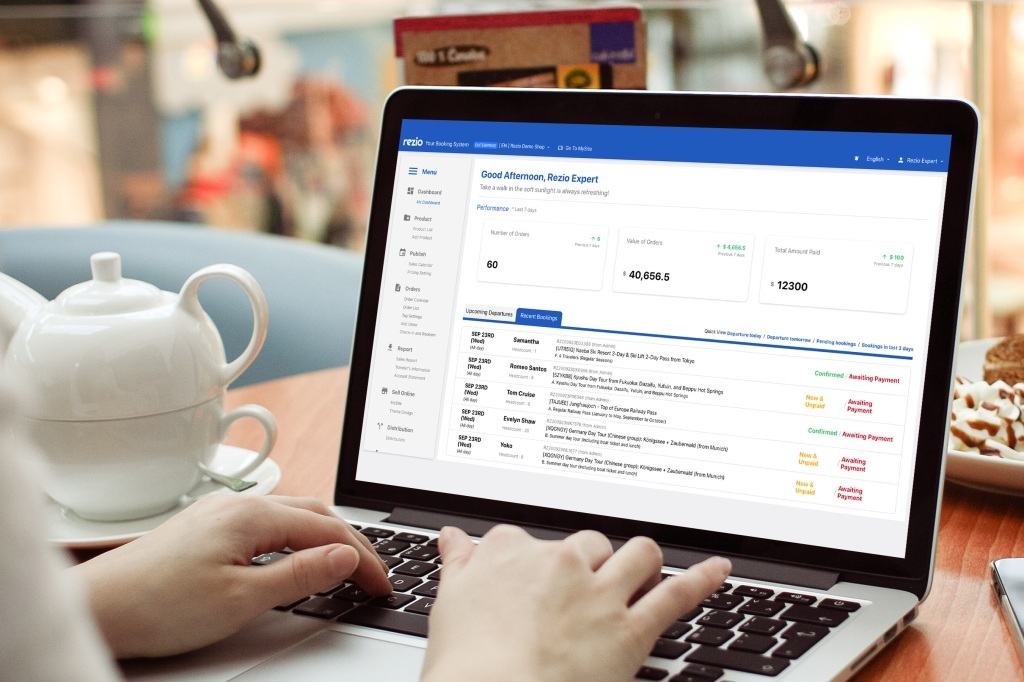Online therapy has become a booming industry in recent years, but with growth arise questions about how well these types of companies protect the privacy of their patients. & # xD;
Most recently, in June, Sens Elizabeth Warren, Cory Booker and Ron Wyden asked two leading online therapy companies, BetterHelp and Talkspace, to provide information about how they handle user data and their privacy practices. & # xD;
Democratic senators said they were concerned that companies could leave patients “vulnerable to the exploitation of large technology platforms and other online actors.” & # xD;
BetterHelp markets itself as the world’s largest online therapy service with nearly 2 million users, according to its web page. The company operates through thousands of therapists who can communicate with patients via phone, text or video chat. & # xD;
But 2020 research from Jezebel found that BetterHelp information is shared with Facebook, including message metadata between patients and therapists. Facebook can also see the duration, approximate location and amount of time people spend on BetterHelp, according to Jezebel. (BetterHelp is an NPR funder). & # xD;
The nonprofit Mozilla Foundation has also raised privacy policy concerns for both BetterHelp and Talkspace. & # xD;
Talkspace told NPR that it has one of the best privacy policies in the industry and that it gathers information to meet senators ’requests. & # xD;
Mary Potter, the company’s chief privacy officer, added that communication between patients and therapists takes place in a “fully-secure, encrypted private room”. We believe that our technology fully complies with [Health Insurance Portability and Accountability Act] privacy and security requirements and protocols. For absolute clarity, we do not sell user information to third parties. “& # xD;
BetterHelp did not respond to requests for comment. & # xD;
With online mental health services providing a convenient alternative to traditional methods of in-person therapy for many people, NPR asked digital privacy experts to weigh in on what you need to know about protecting your privacy when using this type of platform. & # xD;
The privacy tips here can be applied to more than just online therapy services, but experts say these steps can help with privacy related therapy applications as well. & # xD;
It starts with your phone’s settings
“Go through the privacy settings on [your] smartphone‘s operating system. Every time you download an app, go through its privacy settings. Enable any option that allows you to limit how the app tracks you,” said Arvind Narayanan, associate professor of computer science at Princeton University . & # xD;
The host said you should pay attention whenever the screen asks you permission. To see also : Bozeman’s “Montana on the Rise” summit highlights the state’s high-tech economy.
“Don’t simply tap the default option. If you’re trying to limit tracking, a lot of apps will try to convince you that you’re missing out. It’s generally misleading or deceptive claims,” he told NPR. & # xD;
Opt out of personalized ads and cross-app tracking
John Davisson, director of litigation and senior advice at the Electronic Privacy Information Center, said that although the steps to protect your privacy depend primarily on specific applications, users can opt out of personal ads on Google and turn off cross-app tracking. € xD;
“It prevents data that is input to one application from being correlated or collated with data uploaded to another application,” Davisson told NPR. See the article : YMCA presents the new Whole Health Coordinator | News, Sport, Work. & # xD;
If you’re signed in to your Google Account, change the “ad personalization” slider to “OFF” here. This opt-out will work for all devices you sign in to when recognized as signed in, according to Google.
And when you sign out of your Google account, you can opt out of personalized ads on the web and search Google in the options here.
You can disable personal ads on Apple devices, Androids and Facebook and Twitter as well by following the steps here. & # xD;
Disable your mobile advertising ID
Users can also disable mobile ad ID, which limits how the company can collect your data, location, search history and browsing history, according to Davisson. On the same subject : Health Report pres. by Vanderbilt Health: Nashville SC at DC United. & # xD;
For iPhone users, go to Settings & gt; Privacy & gt; Tracking to see if there are any applications that you have previously allowed access to track. Move the slider to “off” where it says “Allow Application to Request Track” so the button appears gray. & # xD;
For Android users, go to Settings & gt; Privacy & gt; Ads & gt; then tap “delete ad IDs.” Older versions of Android can give you the option to “Choose from Ad Personalization.” & # xD;
Read an app’s “privacy nutrition label” carefully
Reading “privacy nutrition labels” applications can give prospective users a clear sense of what type of data collection application and how it is used, according to Davisson. & # xD;
Apple says this label is a way to provide a more transparent explanation of how apps handle user data. & # xD;
You can find Apple’s privacy nutrition label when you scroll down on the page of an app in the App Store where you’ll see the “App Privacy” section. & # xD;
Google Play carries a similar label for Android users that first appeared in some apps in April. & # xD;
These labels don’t always tell the whole story, however, as Apple and Google say developers self -report this information. & # xD;
Other measures
Specifically with BetterHelp, the Mozilla Foundation recommends not connecting applications to social media accounts or third -party devices and not sharing medical data when connecting to those accounts. “Click the‘ Shred ’button next to every message you’ve sent if you want it to no longer show in your account,” says Mozilla’s privacy guide. & # xD;
With Talkspace, Mozilla recommends: “Do not give authorization to use or disclose your medical information. If you have already provided (or you are not sure), remove it by sending an email to privacy@Talkspace.com. Medical data including psychotherapy records may be shared for marketing. “
You can also ask Talkspace to limit what is shared with your insurance by sending an email to request@talkspace.com. & # xD;
Another option for people who think of privacy is to use a virtual private network. VPN is used to mask the location of your computer and stop internet service providers from seeing the websites you visit.
But Narayanan said he believes that VPNs are more complicated and less effective than other methods for protecting your data and privacy online.
Experts say online privacy remains largely out of the individual’s control
“Unfortunately, the lack of strict regulation of apps like BetterHelp and Talkspace has forced people into a very difficult choice between seeking mental health support on the one hand and knowing their privacy will be protected on the other,” Davisson & # xD;
Davisson asserts that people’s individual digital paths are too complex to monitor and maintain their own data in every context. & # xD;
“There is a significant gap in privacy protection and regulation that allows this type of activity to fall through,” he said. & # xD;
Federal privacy laws vary by sector, and HIPAA extends to health plans, health clearinghouses, and health providers, according to Davisson. & # xD;
Federal law seeks to protect patients ’personal health information from being exposed without their knowledge or consent, but Davisson said that this usually does not apply to mental health applications or other health applications such as period trackers. & # xD;
Copyright 2022 NPR. To see more, visit https://www.npr.org.



